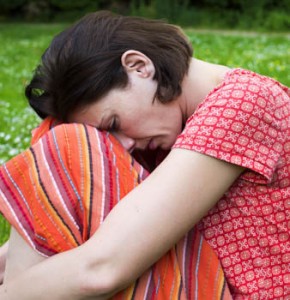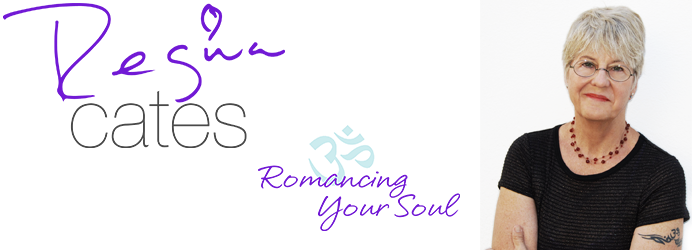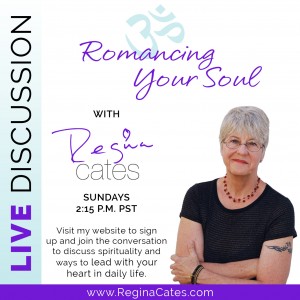 I met a lovely little dog yesterday, and her name is Sophie. Sophie is 12 years old, deaf, and just as smart and sweet as can be. When her owner picked her up, Sophie seemed to melt into her arms. Sophie was so completely content and trusting in her owner’s actions, I could actually feel it.
I met a lovely little dog yesterday, and her name is Sophie. Sophie is 12 years old, deaf, and just as smart and sweet as can be. When her owner picked her up, Sophie seemed to melt into her arms. Sophie was so completely content and trusting in her owner’s actions, I could actually feel it.
I then learned that Sophie had a traumatic past. Her new owner actually rescued her from near euthanization just one year before. It was such a trip to me because without knowing about her past, it seemed like Sophie and her owner had been together forever, and that Sophie hadn’t experienced one second of fear or pain.
Actually, someone had told Sophie’s owner that it takes dogs six months to forget trauma. Whether or not that’s true, I love the way that idea sparks my imagination. Here’s what’s delicious about it to me – why can’t I (or can I?) be dog-like in that way? What if I gave myself six months to grieve/be pissed/hurt about my non-preferred experiences and then move on, healed, renewed and better than ever?
In my case, I was a pro at holding on to resentment and hurt. After experiencing my own trauma as a little one, I held on to it for decades. I kept all of it secret, and my pain jumped from back burner to front burner at different times, but it always stayed with me.
I used to think that if I started to cry, I’d never stop because my pain was so deep. To me tears equaled death. However, once my choice became face the pain or die (yes, I went to the cliff’s edge), facing my pain didn’t kill me, it ultimately freed me! By facing it, I mean safely releasing my anger and hurt (with harm to none, including myself) without judgment.
It felt like I found the formula to release hurt and reconnect with my good feelings (and, by the way, this formula isn’t new, nor is it a secret). I use this formula all the time. Sometimes I “get over it” very quickly, especially when it’s a minor annoyance. And even when I give myself six months (or however much time I think I need) to get over the bigger hurts, invariably I move through them more quickly.
One time I was particularly heartbroken and I allowed my pain to just be. It was simmering inside of me. I let myself feel it without judgment. I felt a pang in my heart for months. Then one day it just bubbled to the surface. I was driving my car, and the song “Since I Fell for You” came on, and my feelings came to a head.
It felt like a dagger pierced my heart. I started crying. And crying. Then I stopped crying. And then I started crying again. I played that one song over and over again whenever I was in my car. Sometimes I would scream, other times I would cry, talk aloud and even laugh. Whatever my emotions needed to express, I let them out safely. I was “in it,” if that makes sense.
I played that one song for about a week. I immersed myself in it and just let my emotions out. All of them that had something to say – about my heartbreak, him, myself, and whatever else – got their turn.
I could literally feel the cloud over my heart lifting. My pain was diminishing and I started to feel a sense of lightness again, or perhaps I lightened up first, which, in turn, soothed my pain. Whatever it was, it happened gently and naturally. My emotions simmered down around my breakup and pretty much went away for good.
I didn’t need to play the song over and over anymore. Actually, I got sick of it. I was done grieving! From that moment on, whenever I think about that breakup, it is now simply a fact. It was an event that had occurred in my life, and now without pain attached to. Actually I was (and am) very grateful for the relationship. I keep with me what I learned, liked and disliked about it, and I continue to let it teach me more about myself. It is very, very cool.
Something tells me I’m not alone when it comes to holding on to painful experiences. Suffice to say, to transform it in six months or less for me means immersing myself in the pain (emotionally speaking) until it naturally heals. I’d still live my life while doing it. I’d still work every day, enjoy my family and friends, and allow my feelings to ebb and flow without judgment and with harm to none, including myself. I would acknowledge and embrace my unfulfilled expectations, and that’s how I break (what feels like) a spell of sadness that I’m under.
Now, when it comes to smart, sweet and trusting little Sophie and those six months, I read that because dogs totally live in the moment they don’t remember past trauma unless something happens that triggers it. I’m thinking that perhaps Sophie’s current environment is so peaceful that she is just completely chilled out. There’s no longer fear and pain, just love.
If only it were that simple for humans – to have a peaceful and trigger-less environment in order to forget all the pain. My experience is that it doesn’t happen that way… I used to find triggers regardless, even if they were only in my mind and I’d relive painful experiences over and over again.
But what if we allowed ourselves to feel the pain with the intention of getting through it rather than avoiding, judging or trying to ignore it? Why not embrace hurt and sadness, giving them some attention just as we would a more pleasant and likable aspect of ourselves? After all, they do coexist. We can feel pain alongside joy, curiosity, etc.
What if you face your pain and tell yourself the truth about how you feel about it with harm to none, including yourself? What if your triggers only summoned the memory of the event with no pain attached to it? I believe it is possible for you, and possible to live each moment, having been enriched by all of your non-preferred experiences.
At all times, I wish you Sophie’s unwavering contentment and love!
 If you’ve ever suffered the loss of a loved then you understand that there are times when getting out of bed or up off of the floor seem impossible. It doesn’t matter if it’s a day after their passing or months later grief takes over and there seems to be absolutely nothing you can do about it. What you’re experiencing is not only natural, but in my opinion, a necessary part of healing. That doesn’t mean however it’s easy.
If you’ve ever suffered the loss of a loved then you understand that there are times when getting out of bed or up off of the floor seem impossible. It doesn’t matter if it’s a day after their passing or months later grief takes over and there seems to be absolutely nothing you can do about it. What you’re experiencing is not only natural, but in my opinion, a necessary part of healing. That doesn’t mean however it’s easy.
 It’s okay to get angry and frustrated at times, but it’s not okay to make these a lifestyle.
It’s okay to get angry and frustrated at times, but it’s not okay to make these a lifestyle.
Feedback